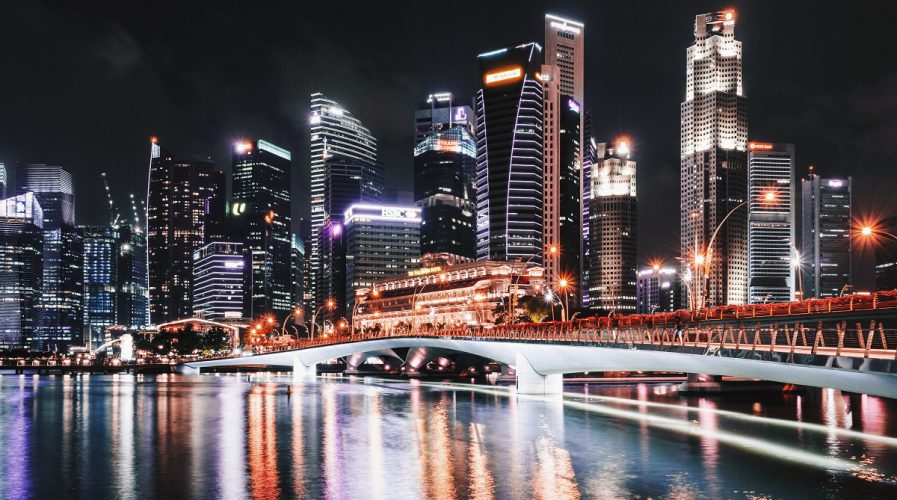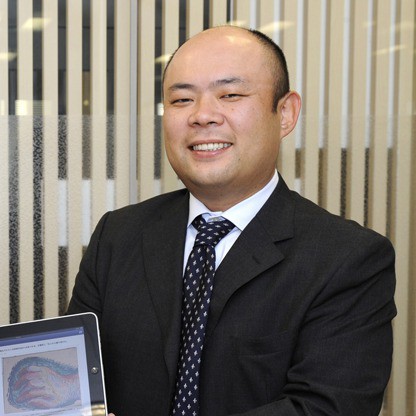
Singapore has a strong background in data center capacity, which is set to rise. Source: Unsplash
Japanese gaming magnate packs bags, heads off to the Little Red Dot
TAIZO Son, brother to the second richest man in Japan, Masayoshi Son, has abandoned his native Japan for the tropical climes of Singapore’s wealthy Sentosa neighbourhood.
Son made his fortune in the mobile gaming sector, racking up huge profits off his “Puzzle and Dragons” app. He says he intends to invest US$100 million in Southeast Asia’s nascent tech industry over the next five years.
Of course, what is Japan’s loss is Singapore’s gain. The tiny city-state has been working over the last three years to transform itself into the tech hub of the region. Plenty of government money and policy discussions were aimed at fostering an environment seductive enough to entice companies to invest in the country’s relatively mature tech sector. The Singaporean government has been particularly attentive to the growth of the tech sector and has implemented large policies to digitize records and administrative processes.

Taizo Son claims family relations with some of the biggest names in Japanese business. He is brother to Masayoshi Son, the CEO of Softbank and Japan’s second richest man.
The country boasts low-income taxes, zero capital gains taxes, various government subsidies that include grants and funds matching schemes (aimed mainly at attracting VCs to feed the growing pool of startups), as well as tech-centered visa programs meant to lure talent to the city.
Government policies are also paired up with a young, enthusiastic local talent pool that’s also highly educated, with Singapore regularly ranking as having one of the highest graduate rates in the world.
Singapore’s plans seem to have worked thus far – Son will be joining the ranks of other tech icons who have moved to Singapore for its favorable climate. The club includes Facebook co-founder, Eduardo Saverin.
Singapore has a lot to recommend itself as an operations base for any technology company. It boasts an impressive 73 percent Internet penetration rate, while Singapore’s population now relies heavily on online-data processing, a particular goal of Prime Minister Lee Hsien Loong’s Smart Nation initiative. The country is highly connected globally, a feature borne mostly out of its success as a financial hub.
Channel News Asia reported last year by 2025, Singapore’s e-commerce market will exceed SGD7 billion, and is expected to make up over 6.5 percent of all transactions. Other tech sub-sectors performing particularly well in Singapore include fintech, animation, data processing and game development.
SEE ALSO: What is a ‘Smart City’ and how does Asia rank among the world’s best?
Game development will be particularly important for Son, who founded GungHo Online Entertainment Inc. His current Singaporean investment portfolio includes Garena, a games and e-commerce operator widely considered the most valuable startup in Southeast Asia.
“The games industry is Singapore’s fastest-growing media sub-sector,” said a spokesman from Singapore’s Media Development Authority back in 2015. Other international game developers, such as Ubisoft, Gumi Asia and Tecmo Koei, have also set up shop in Singapore
He is now chief executive officer of Mistletoe, a combination of early-stage venture firm, incubator and entrepreneur-in-residence program. The company will probably benefit from Singapore’s generous VC-focused benefits as well as the vibrant startup scene in Singapore.
During an event in the city state, Son explained that his reasons for moving to Singapore were largely motivated by what he sees as Japan’s failure to keep up with the pace of global technological change.
“I tried very hard by lobbying the Japanese government: ‘Why don’t we have a regulatory sandbox to bring some innovative ideas?,”’ Son told the event arranged by the private bank of DBS Group Holdings Ltd. “But the country’s too big and very slow to move. But [in Singapore], even the government, regulators are innovation-minded.”
His move comes at a time when Japan’s technology industry, once the envy of developed nations, is being forced into doing some soul-searching as the biggest names in the industry—such as Toshiba, Panasonic, and Hitachi—are engulfed in scandal and drowning in red-marked account books. Son’s move might be the first of many if Japan fails to meet their desires for more government intervention in the tech sector.
SEE ALSO: GE launches 1st high-tech service center in Singapore
Son also lobbed insults at the Japanese education system, which his son was enrolled in, saying that is “extremely terrible” for fostering entrepreneurial minds and talent. He expects that his permanent residency application will come through within the next three months.
“I’m getting an inspiration from Venice because inside Venice there is no car,” he said, laying out his vision for a futuristic urban life, where cars are relegated to underground channels and showers can be had with suitcase-sized water purification systems. For him, cities of the future are “human-centric” and it’s safe to say that he’ll be bringing that vision with him to Singapore.
READ MORE
- Ethical AI: The renewed importance of safeguarding data and customer privacy in Generative AI applications
- How Japan balances AI-driven opportunities with cybersecurity needs
- Deploying SASE: Benchmarking your approach
- Insurance everywhere all at once: the digital transformation of the APAC insurance industry
- Google parent Alphabet eyes HubSpot: A potential acquisition shaping the future of CRM
